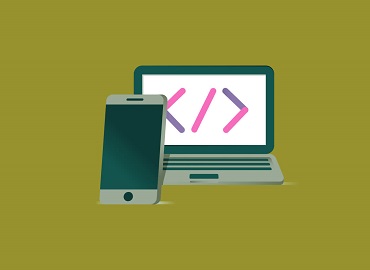Introduction to Mobile App Development: A Beginner’s Guide
By Farhanmeo
In our increasingly digital world, mobile apps have become an integral part of our daily lives. From ordering food to managing finances, mobile apps offer convenience and accessibility like never before. If you’re intrigued by the idea of creating your own mobile app or venturing into the world of app development, this beginner’s guide will serve as a roadmap to kickstart your journey.
The Mobile App Landscape Understanding Mobile Platforms
Mobile app development primarily revolves around two major platforms: iOS and Android.
iOS: Developed by Apple, iOS powers devices like iPhones and iPads. It uses Swift or Objective-C as the programming languages.
Android: Created by Google, Android is the operating system for a wide range of smartphones and tablets. Android apps are typically developed using Java or Kotlin.
Getting Started with App Development Learning the Basics
Before diving into app development, you’ll need to grasp some fundamental concepts:
- Programming Languages: Depending on your chosen platform, learn the relevant programming language (e.g., Swift/Kotlin for native, JavaScript for React Native).
- User Interface (UI) Design: Understand how to create user-friendly interfaces. Tools like Sketch, Figma, or Adobe XD can aid in design.
- Version Control: Get familiar with version control systems like Git to manage your code. Setting Up Your Development Environment
You’ll need a development environment tailored to your platform:
- iOS: Install Xcode (Apple’s integrated development environment) on a Mac.
- Android: Set up Android Studio for Android app development.
- Cross-Platform: For tools like React Native and Flutter, follow their installation guides. Building Your First App
Start small with a basic app idea. Tutorials and online courses are invaluable for beginners. As you progress, explore more complex projects and practice regularly.
App Deployment
Once your app is ready, you’ll want to share it with the world:
App Stores
- Apple App Store: To publish iOS apps.
- Google Play Store: For Android apps. App Permissions and Policies
Be aware of app store policies, and ensure your app complies with them. Understand permissions and data privacy to protect user information.
Beyond the Basics
Mobile app development is a continuous learning journey. Explore advanced topics like cloud integration, databases, and security as you gain experience.
Conclusion
Mobile app development offers a thrilling blend of creativity and problem-solving. Whether you aim to build the next social media sensation or a niche utility app, this introduction provides the foundation to embark on your mobile app development adventure. Start small, keep learning, and who knows — your app might be the next big thing!

